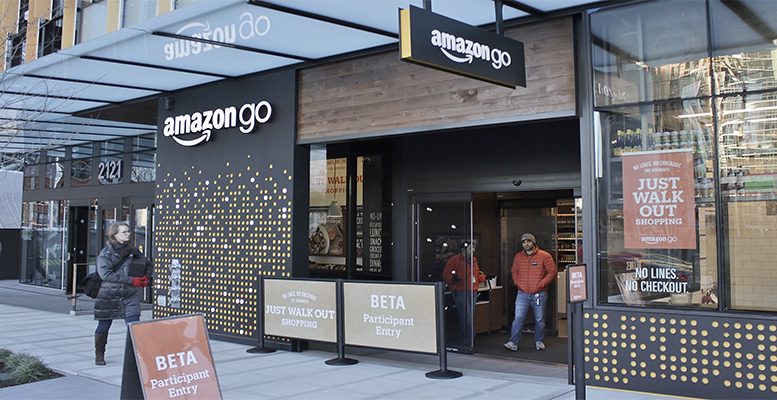*This post was originally published by Fair Observer.
The launch of Amazon Go on January 22 is poised to alter the retail industry by radically simplifying a chore most of us do every day: grocery shopping. Seattle, home to Amazon’s headquarters, saw the opening of a first grocery store that will operate without a checkout line.
Using the so-called just-walk-out technology, customers simply walk into the store, grab whatever they want and leave without the burden of waiting in line. This system utilizes “the same type of technologies used in self-driving cars: computer vision, sensor fusion and deep learning,” according to Amazon. All you have to do is download the Amazon Go app, scan your phone on the machine at the entrance and anything you pick up will be added to you virtual Amazon account. If you decide to put something back, it is automatically removed from your account.
Amazon became a big league player in the food industry when it it spent $13.7 billion on the acquisition of Whole Foods in 2017, boosting the world’s biggest online retailer’s revenues a further 34%.
Considering that Amazon is giving big corporations such as Walmart and Kroger a run for their money, it would be nearly impossible for smaller grocers to compete. Last year, Amazon’s internal plans showed that it could build 2,000 stores across the US in the next decade, Business Insider reported. If Amazon decides to expand its new grocery line across the country, local shops could be in trouble.
Anyone working in the retail industry will start feeling the pressure of automation. A major decline in the human labor market is already being felt. In January this year, 14.5 million retail workers were employed across America, 1.1 million fewer than in January 2008. Amazon Go is destined to only exacerbate the decrease in the need for human laborers across the board.
As the Amazon giant continues to expand, The National looks at the evolution of shopping and the possible ramifications this new step ahead could have on local communities.
*This post was originally published by Fair Observer.





